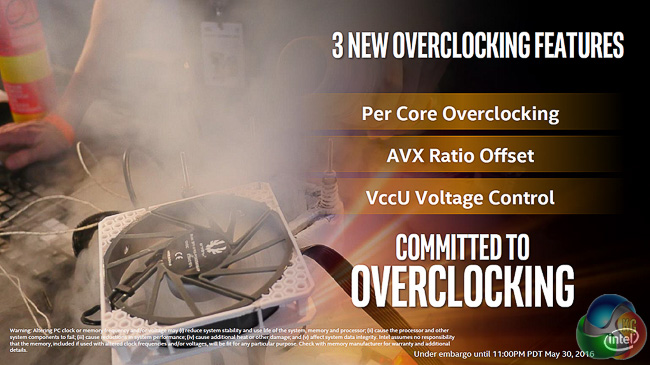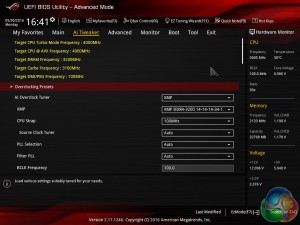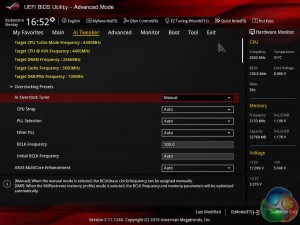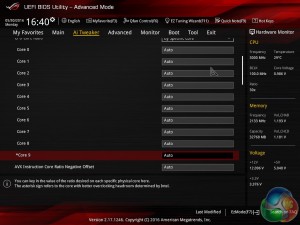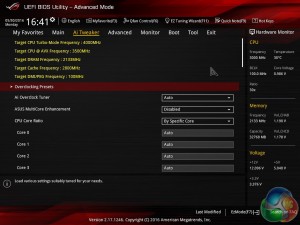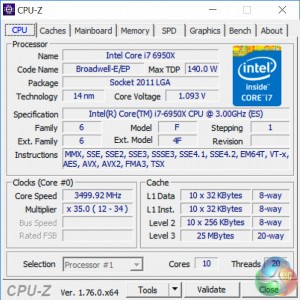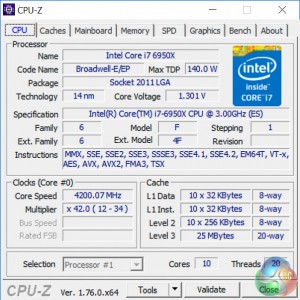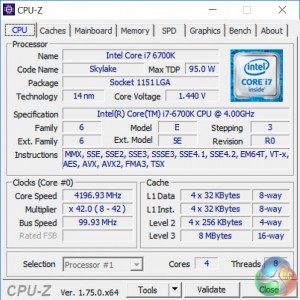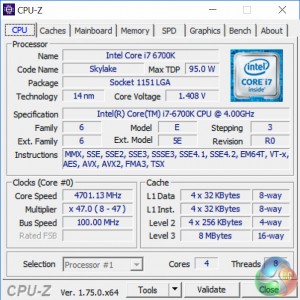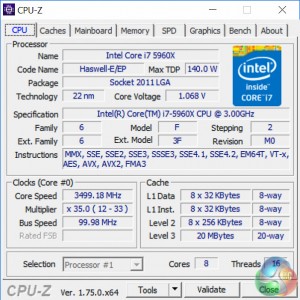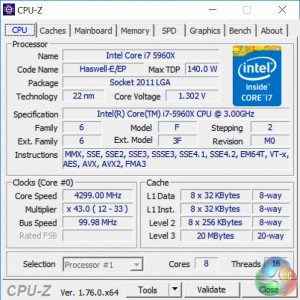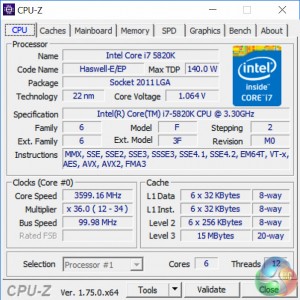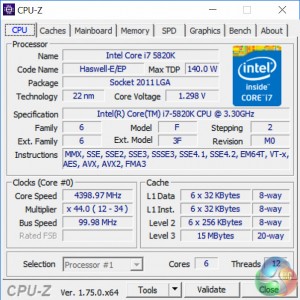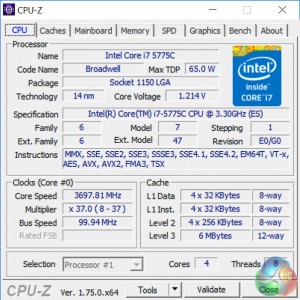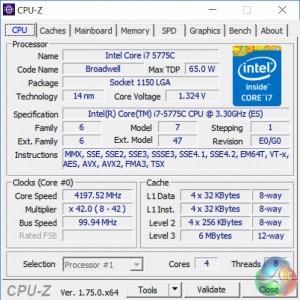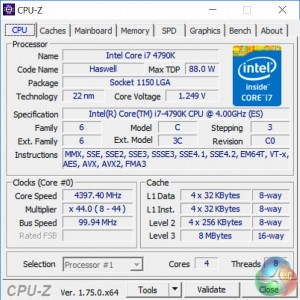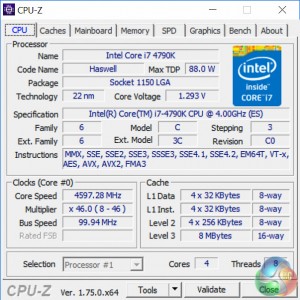Overclocking is quite similar to previous generations of Intel CPUs (prior to Skylake), the bulk of the frequency increase can be had by adjusting the multiplier and the core voltage but there are a number of other parameters for consideration, including some new features:
- AVX Ratio Offset – controls the frequency at which AVX applications run
- CPU Cache Frequency – controls the frequency at which the CPU's cache operates, this can benefit applications which interface frequently with the cache or system memory
- Per Core Overclocking – designate different clock speeds per core, according to ASUS Core #9 is the most capable
The base clock for Broadwell-E does not feature the same external clock generators found on Skylake and Z170, thus the BCLK plays a smaller role in Broadwell-E overclocking.
We overclocked each processor in our review to a level we deem achievable for the majority of CPU owners of each respective CPU. For the i7 6950X 4.2GHz was a possible to achieve frequency with reasonable voltage of 1.3, 4.3GHz was also achievable and stable at the same voltage though we heard reports from other media that their chips weren't stable at 4.3GHz. 4.4GHz or higher depends on the quality of the silicon and capability of cooling to tame additional voltage, we couldn't get stability at this frequency.
We left the AVX ratio alone, left the CPU cache frequency to its default Auto value and enabled our XMP profile. Interestingly, we found that when enabling our XMP profile ASUS auto-overclocks the CPU to 4GHz which requires 1.3 volts and drastically increases power consumption. As such, we brought the max ratio back down to 35 for our stock testing, in line with Intel's Turbo Boost 2.0 specification.
ASUS has a baked-in Broadwell-E 10 core preset, under overclocking presets, which opts for the following configuration:
- 4.4GHz on the first two cores, 4.3GHz on the next three cores, 4.2GHz on the sixth core and 4.1GHz on the last four cores;
- 3.6GHz cache frequency
- 4GHz AVX frequency
- 2666MHz DDR4 frequency
That largely confirms our expectations that 4.2~4.4GHz is where most 24/7 stable overclocks will be.
The AVX ratio on the ASUS motherboard operates as a negative off-set value – if you key in 5 for example, it will run the AVX frequency at 3.5GHz when the CPU frequency is 4GHz.
The per core overclocking works as you might expect: dial in a ratio and that core will run at the specified ratio when loaded.
4.2GHz, it seems, will be the minimum achievable all-core overclock by most i7 6950X owners. 4.3GHz is the sweet spot for frequency and voltage and 4.4GHz or more will be achievable to higher quality silicon and better cooling setups. Interestingly, these numbers are quite similar to the i7 5775C which is remarkable given that there are 10 cores with the i7 6950X compared to 4 on the i7 5775C.
We expect the lower core count Broadwell-E CPUs, such as the i7 6800K, will be able to clock higher.
For the rest of the CPU overclocks in our test we determined a representative frequency of what most users would be able to achieve (based on our own testing and forum feedback), though voltage will vary depending on silicon quality. Our stock frequencies were the fixed maximum Turbo Boost 2.0 frequency for each Intel CPU to offset the effects of variable Turbo behaviour between motherboards. All the stock and overclocked frequency CPU-Z screenshots can be found below.
Intel Core i7 6700K
Intel Core i7 5960X
Intel Core i7 5820K
Intel Core i7 5775C
Intel Core i7 4790K
 KitGuru KitGuru.net – Tech News | Hardware News | Hardware Reviews | IOS | Mobile | Gaming | Graphics Cards
KitGuru KitGuru.net – Tech News | Hardware News | Hardware Reviews | IOS | Mobile | Gaming | Graphics Cards


